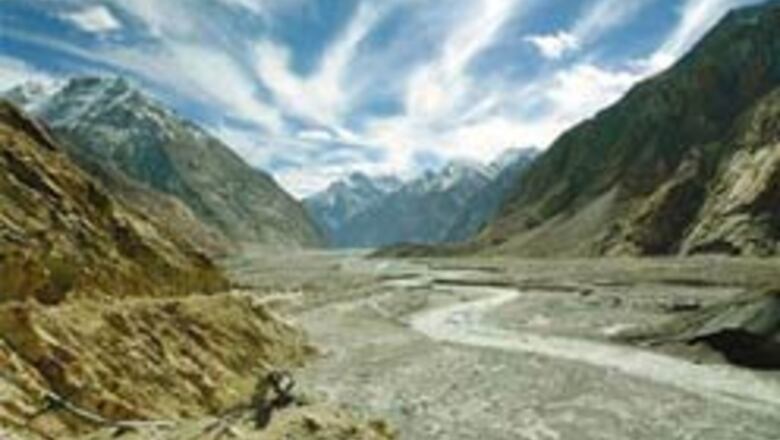
views
Union Environment Minister Jairam Ramesh caused quite a stir in environment circles when he said there is no conclusive evidence to prove that Himalayan glaciers are melting due to climate change. His ministry published a discussion paper, which claims that while glaciers such as the Siachen are advancing, others including Gangotri are retreating slower than before. Now, that is a question worth pondering on the eve of the Copenhagen summit.
Climate Indicators
“Glacier retreat is probably the most obvious and easily understood proof of climate change,” says noted environment writer in Global Warning: The Last Change to Change, Paul Brawn. He quotes a Utrecht University study showing 142 of 144 glaciers under observation decreased in length in accordance with the change in climate. Recent studies by the Intergovernmenal Panel on Climate Change (IPCC) says the same of Himalayan glaciers.
The IPCC Viewpoint
Chairman IPCC, Rajendra Pachauri, called the paper “arrogant” and “nonsense.” Two years ago the IPCC’s Fourth Assessment Report on Climate Change said glaciers were “most visible” indicators of climate change. It added that the Himalayan glaciers were receding faster than any other and at this pace, risk disappearing by 2035. “The Arctic is melting because of climate change. What is so special about Indian glaciers?” asked Pachauri.
Perennial Gift
The Himalayan mountains are home to 9,500 glaciers and are an important source for India’s Ganges river, China’s Yangtze River, Nepal’s Karnali and Pakistan’s Indus. Almost 1.5 billion people depend on them. True, glaciers contribute only about 10 per cent of the water that flows in these rivers, but are important to keep them perennial.
The Global Story
Study papers by the World Wildlife Fund Glaciers have noted that there are about 100,000 glaciers in the world and have been retreating since the end of the Little Ice Age. Some like James Hansen of NASA say a new world order in climate has already taken place. The coldest regions are supposed to be the most vulnerable and the Arctic ice is said to have shrunk from 7.5 million square kilometers to 4.5. A week after the Indian report, scientists in New Zealand came out with reports that the Kiwis have lost half of their ice and snow in just 30 years!
Eye on Copenhagen
The timing of the report has not been lost on anyone. Climate change a political issue as much as an environmental one. In December, world leaders will assemble in the Denmark capital to “develop a framework to slow global warming” and India has made it clear that nations causing maximum emission, should shoulder most of the responsibilities. The report, if anything, reflects the aggressive stance that India is expected to take at the meet.



















Comments
0 comment